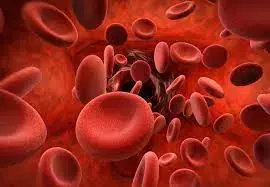- Home
- Medical news & Guidelines
- Anesthesiology
- Cardiology and CTVS
- Critical Care
- Dentistry
- Dermatology
- Diabetes and Endocrinology
- ENT
- Gastroenterology
- Medicine
- Nephrology
- Neurology
- Obstretics-Gynaecology
- Oncology
- Ophthalmology
- Orthopaedics
- Pediatrics-Neonatology
- Psychiatry
- Pulmonology
- Radiology
- Surgery
- Urology
- Laboratory Medicine
- Diet
- Nursing
- Paramedical
- Physiotherapy
- Health news
- Fact Check
- Bone Health Fact Check
- Brain Health Fact Check
- Cancer Related Fact Check
- Child Care Fact Check
- Dental and oral health fact check
- Diabetes and metabolic health fact check
- Diet and Nutrition Fact Check
- Eye and ENT Care Fact Check
- Fitness fact check
- Gut health fact check
- Heart health fact check
- Kidney health fact check
- Medical education fact check
- Men's health fact check
- Respiratory fact check
- Skin and hair care fact check
- Vaccine and Immunization fact check
- Women's health fact check
- AYUSH
- State News
- Andaman and Nicobar Islands
- Andhra Pradesh
- Arunachal Pradesh
- Assam
- Bihar
- Chandigarh
- Chattisgarh
- Dadra and Nagar Haveli
- Daman and Diu
- Delhi
- Goa
- Gujarat
- Haryana
- Himachal Pradesh
- Jammu & Kashmir
- Jharkhand
- Karnataka
- Kerala
- Ladakh
- Lakshadweep
- Madhya Pradesh
- Maharashtra
- Manipur
- Meghalaya
- Mizoram
- Nagaland
- Odisha
- Puducherry
- Punjab
- Rajasthan
- Sikkim
- Tamil Nadu
- Telangana
- Tripura
- Uttar Pradesh
- Uttrakhand
- West Bengal
- Medical Education
- Industry
Shorter anticoagulant therapy safe, effective in provoked venous thromboembolism: JAMA

Among patients younger than 21 years of age, anticoagulant therapy for 6 weeks compared with 3 months met noninferiority in provoked venous thromboembolism, according to a recent study published in the JAMA.
A study was conducted to test the hypothesis that a 6-week duration of anticoagulant therapy for provoked venous thromboembolism is non-inferior to a conventional 3-month therapy duration in patients younger than 21 years of age.
Randomized clinical trial involving 417 patients younger than 21 years of age with acute, provoked venous thromboembolism enrolled at 42 centers in 5 countries from 2008-2021. The main exclusions were severe anticoagulant deficiencies or prior venous thromboembolism. Patients without persistent antiphospholipid antibodies and whose thrombi were resolved or not completely occlusive upon repeat imaging at 6 weeks after diagnosis underwent randomization. The final visit for the primary end points occurred in January 2021. Total duration for anticoagulant therapy of 6 weeks (n = 207) vs 3 months (n = 210) for provoked venous thromboembolism.
The primary efficacy and safety end points were centrally adjudicated symptomatic recurrent venous thromboembolism and clinically relevant bleeding events within 1 year blinded to treatment group. The primary analysis was noninferiority in the per-protocol population. The noninferiority boundary incorporated a bivariate trade-off that included an absolute increase of 0% in symptomatic recurrent venous thromboembolism with an absolute risk reduction of 4% in clinically relevant bleeding events (1 of 3 points on the bivariate noninferiority boundary curve).
Results:
Among 417 randomized patients, 297 (median age, 8.3 [range, 0.04-20.9] years; 49% female) met criteria for the primary per-protocol population analysis. The Kaplan-Meier estimate for the 1-year cumulative incidence of the primary efficacy outcome was 0.66% (95% CI, 0%-1.95%) in the 6-week anticoagulant therapy group and 0.70% (95% CI, 0%-2.07%) in the 3-month anticoagulant therapy group, and for the primary safety outcome, the incidence was 0.65% (95% CI, 0%-1.91%) and 0.70% (95% CI, 0%-2.06%). Based on absolute risk differences in recurrent venous thromboembolism and clinically relevant bleeding events between groups, noninferiority was demonstrated. Adverse events occurred in 26% of patients in the 6-week anticoagulant therapy group and in 32% of patients in the 3-month anticoagulant therapy group; the most common adverse event was fever (1.9% and 3.4%, respectively).
Thus, the researchers concluded that among patients younger than 21 years of age with provoked venous thromboembolism, anticoagulant therapy for 6 weeks compared with 3 months met noninferiority criteria based on the trade-off between recurrent venous thromboembolism risk and bleeding risk.
Reference
Effect of Anticoagulant Therapy for 6 Weeks vs 3 Months on Recurrence and Bleeding Events in Patients Younger Than 21 Years of Age With Provoked Venous Thromboembolism The Kids-DOTT Randomized Clinical Trial by Neil A. Goldenberg, et al. published in the JAMA
Dr. Shravani Dali has completed her BDS from Pravara institute of medical sciences, loni. Following which she extensively worked in the healthcare sector for 2+ years. She has been actively involved in writing blogs in field of health and wellness. Currently she is pursuing her Masters of public health-health administration from Tata institute of social sciences. She can be contacted at editorial@medicaldialogues.in.
Dr Kamal Kant Kohli-MBBS, DTCD- a chest specialist with more than 30 years of practice and a flair for writing clinical articles, Dr Kamal Kant Kohli joined Medical Dialogues as a Chief Editor of Medical News. Besides writing articles, as an editor, he proofreads and verifies all the medical content published on Medical Dialogues including those coming from journals, studies,medical conferences,guidelines etc. Email: drkohli@medicaldialogues.in. Contact no. 011-43720751


